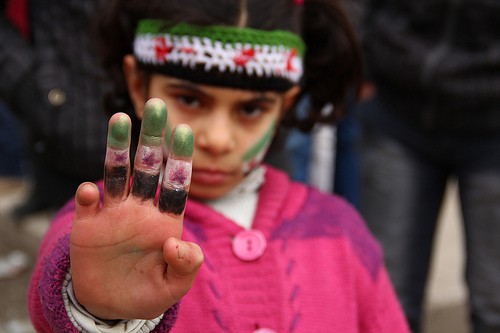26th March 2015 Istanbul, Turkey
Syrians’ right to truth and justice
This week marked the International Day for the Right to the Truth concerning Gross Human Rights Violations and for the Dignity of Victims. The recent release of photographs by the Syrian army defector known as ‘Caesar’ shows the tortured bodies of thousands of detainees, giving the international community a timely reminder of the concealed truth of the Assad regime’s flagrant abuse of its citizens’ dignity. This Wednesday also marked the verdict hearing of three prominent human rights defenders, Mazen Darwish, Hani Al-Zaitani and Hussain Ghrer, who have been held by the regime since February 2012. The advent of these events calls for serious reflection on the continuing suffering of detainees and their families and what we, along with our international partners, can do.
In Syria today, reports of ISIL-run prisons in former government buildings in the north and alleged Hizballah detention facilities in the south show that most of the armed actors in the conflict have forcefully and arbitrarily held prisoners. However, on no other side has the system of imprisonment and torture and death in detention been on such a massive and institutionalized scale as on the regime’s – a system that Human Rights Watch in 2012 dubbed an ‘archipelago of torture’. Among the many who have disappeared and perished are protesters, journalists, political activists, captured defectors and rebels, as well as medics and family members of activists and defectors.
The conditions inside detention facilities are subhuman. Many victims are believed to have died as a result of injuries from torture or as result of a lack of medical care.
A perverse and ugly irony is that the regime-run detention system has stretched itself to near breaking point just by the sheer number of detainees it takes in. According to testimonies by former prisoners, there have been cases in which people died of suffocation or starvation – results of overcrowded cells that house over 50 persons and a decreased capability of the regime to feed detainees.
Caesar’s 55,000 photos speak for themselves about the systematic horror of Assad’s prisons. With help of the Caesar files and international and Syrian human rights organizations, families are now recognizing their loved ones who died in detention. Tens of thousands of other Syrians, including women and children, who were forcefully detained at some point in their country’s civil war, have effectively disappeared – leaving their families despairing, without any trace of information to go on. The trauma that these abuses have instilled in the Syrian population will surely remain for many years to come.
In a worsening situation for victims and their families, it is essential that we remain focussed on our efforts to promote the right to truth and justice. The UK maintains a strong commitment to seeking accountability through keeping up pressure on the regime. Imposing sanctions is one such example of this. Earlier this month, the EU announced 13 new sanctions listings against individuals and organisations supporting the regime. At the UN, we are leading efforts to build an international consensus behind war crimes prosecutions. Ideally, this is something the International Criminal Court would have looked at. But, as ever, the regime’s backers in the UN Security Council ensure no referral to the ICC is made.
This week, along with international partners, we presented a resolution to the Security Council that highlights violations and abuses across Syria, particularly the violations of the Assad regime. When adopted it will mandate the UN Commission of Inquiry for a further year – a vital tool to ensure violations and abuses are recorded so that those responsible can be held to account.
We won’t see progress towards accountability and justice alone – the international community must rally to Syria’s cause. This week’s events remind us of the urgency, notwithstanding four years of this conflict have passed without resolution. As the conflict enters its half-decade, we must maintain pressure on the regime for a negotiated solution to have a chance of success. It is only through a political settlement that the individual perpetrators of human rights abuses will be held accountable and the families of victims will see justice.
